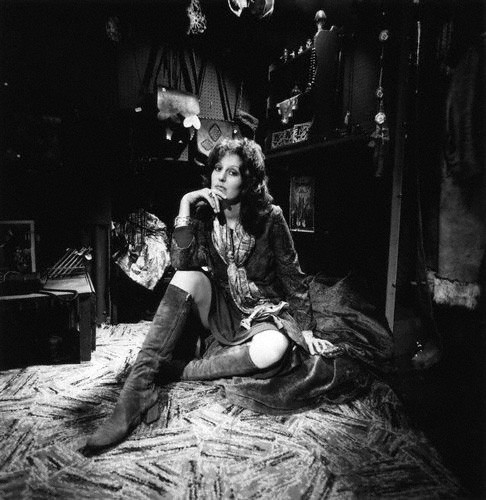REMEMBRANCE OF THINGS PAST
After rereading Eric Hoffer’s “The True Believer,” I decided to chose another book from my past and found a cheap paperback of Germaine Greer’s “The Female Eunuch” (1971). I wondered if her views that underpinned the women’s movement had worn as well over time. As I read, a few of her comments seemed dated, but her assumption that women want autonomy and the ability to choose for themselves still rings true.

(Germaine Greer, photo by Lord Snowdon)
Of course, not all women in our country agree with that premise but my concern is for those who do. They are the ones in danger of mistaking a career and a bank account as evidence of their liberation. But being liberated is a state of mind as well as an external condition. Take the case of Carol Ross Joynt, a television executive who has just written, “Innocent Spouse: A Memoir.” Now a widow, she gives an account of a marriage where any potential friction or discomfort was muted by her husband’s money. She enjoyed living the good life and thought her husband was an excellent provider. When he died, unexpectedly, her palace of cards collapsed. She discovered her spouse owed 3 million dollars to the IRS and before his death, he was about to be indicted. Unfortunately, the burden of paying his debts fell to the wife who never questioned the facts of her marriage and was content to let her husband manage their affairs. As a consequence, she admits, the words in an IRS report that described her character are true:
“She fell in love with Howard [her husband] believing he would be able to take care of her and would never let anything happen to her.”
Carol Ross Joynt lived her married life in ignorance, content to be a bird in a gilded cage rather than to be free. But her husband’s death forced her to open her eyes:
“I didn’t ever again want to be sheltered, pampered, and indulged, a woman who didn’t know what escrow meant or whether her husband paid his taxes. I would decide where and how the money would go. If I made mistakes, at least they would be my own.” (“Vogue,” 4/11)

(Yahoo Images)
In 1971, Germaine Greer in her book wrote, “every mistake is redeemed when it is understood.” The author of “Innocent Spouse” made a huge mistake. But if Greer’s remarks hold any water today, there is hope for Carol Ross Joynt and for all of us who are willing to learn.